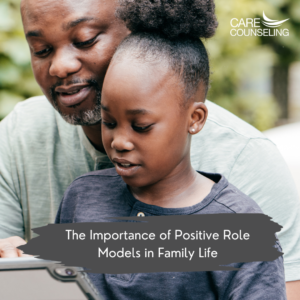The Importance of Positive Role Models in Family Life
 In the intricate tapestry of family life, the role of a positive role model holds significant importance. These individuals guide, inspire, and shape the values, behaviors, and attitudes of their family members.
In the intricate tapestry of family life, the role of a positive role model holds significant importance. These individuals guide, inspire, and shape the values, behaviors, and attitudes of their family members.
- Setting a Moral Compass
Positive role models in family life often serve as moral compasses, showing family members the difference between right and wrong. They embody values such as honesty, integrity, and empathy, inspiring those around them to uphold these principles.
- Teaching Responsibility
Responsibility is a key component of family life, from caring for children to managing household chores. Positive role models demonstrate responsibility by fulfilling their commitments, providing an example for others to follow.
- Fostering Resilience
Inevitably, families encounter challenges and setbacks. Positive role models help family members develop resilience by demonstrating how to bounce back from adversity, handle stress, and overcome obstacles with determination.
- Encouraging Empathy
Empathy is a cornerstone of healthy relationships and social development. Role models who express compassion and understanding toward others encourage family members to develop empathy, fostering strong connections and relationships.
- Promoting Lifelong Learning
Curiosity and the pursuit of knowledge are essential for personal growth. Positive role models often embrace lifelong learning, inspiring family members to remain open to new experiences and continued education.
- Encouraging Healthy Lifestyle Choices
Positive role models prioritize physical and mental well-being. Whether through exercise, healthy eating, or mindfulness practices, they inspire family members to adopt and maintain healthy lifestyle choices.
- Embracing Diversity
In today’s diverse world, positive role models advocate for inclusivity and acceptance of differences. They demonstrate the importance of embracing diversity, instilling a sense of respect and open-mindedness in their family members.
- Balancing Work and Life
Balancing work and personal life is a significant challenge in the modern world. Positive role models exemplify the importance of striking this balance, showing their family members how to prioritize and manage time effectively.
- Nurturing Strong Family Bonds
Positive role models invest in strengthening family bonds. They prioritize quality family time, create meaningful traditions, and encourage open communication, fostering a sense of unity and belonging.
- Demonstrating Conflict Resolution
Conflict is a natural part of any family, but how conflicts are resolved can greatly impact family dynamics. Positive role models exhibit healthy conflict resolution techniques, showing their family members how to resolve disputes with respect, empathy, and communication.
- Modeling Effective Communication
Effective communication is the backbone of family life. Role models who communicate openly, listen actively, and express their thoughts and emotions constructively inspire their family members to follow suit.
- Building Self-Esteem
Positive role models play a pivotal role in building self-esteem in their family members. They offer encouragement, celebrate achievements, and provide unconditional love, all of which contribute to a healthy sense of self-worth.
- Demonstrating Financial Responsibility
Financial literacy and responsibility are crucial life skills. Positive role models in family life often exemplify wise financial decisions and planning, guiding their family members toward financial stability.
- Promoting a Sense of Purpose
Positive role models help family members discover and nurture their passions and interests. They inspire a sense of purpose and encourage their loved ones to pursue their dreams and aspirations.
- Leaving a Legacy
Positive role models create a lasting legacy within their family. They inspire their family members to carry forward the values and principles they have embodied, ensuring that the positive impact endures through generations.
Positive role models in family life are not just individuals who offer love and guidance; they are beacons of light, illuminating the path to personal growth, ethical living, and strong family bonds. Their influence extends far beyond the present, shaping the future of their family members.
As family members observe, internalize, and emulate the qualities and behaviors of their positive role models, they inherit a profound source of inspiration that fosters personal growth, resilience, empathy, and a deep sense of belonging. In a world that often seems complex and challenging, the importance of positive role models in family life cannot be overstated. They are the pillars that provide strength and support, ensuring that the family thrives and the values they embody endure through generations.



























